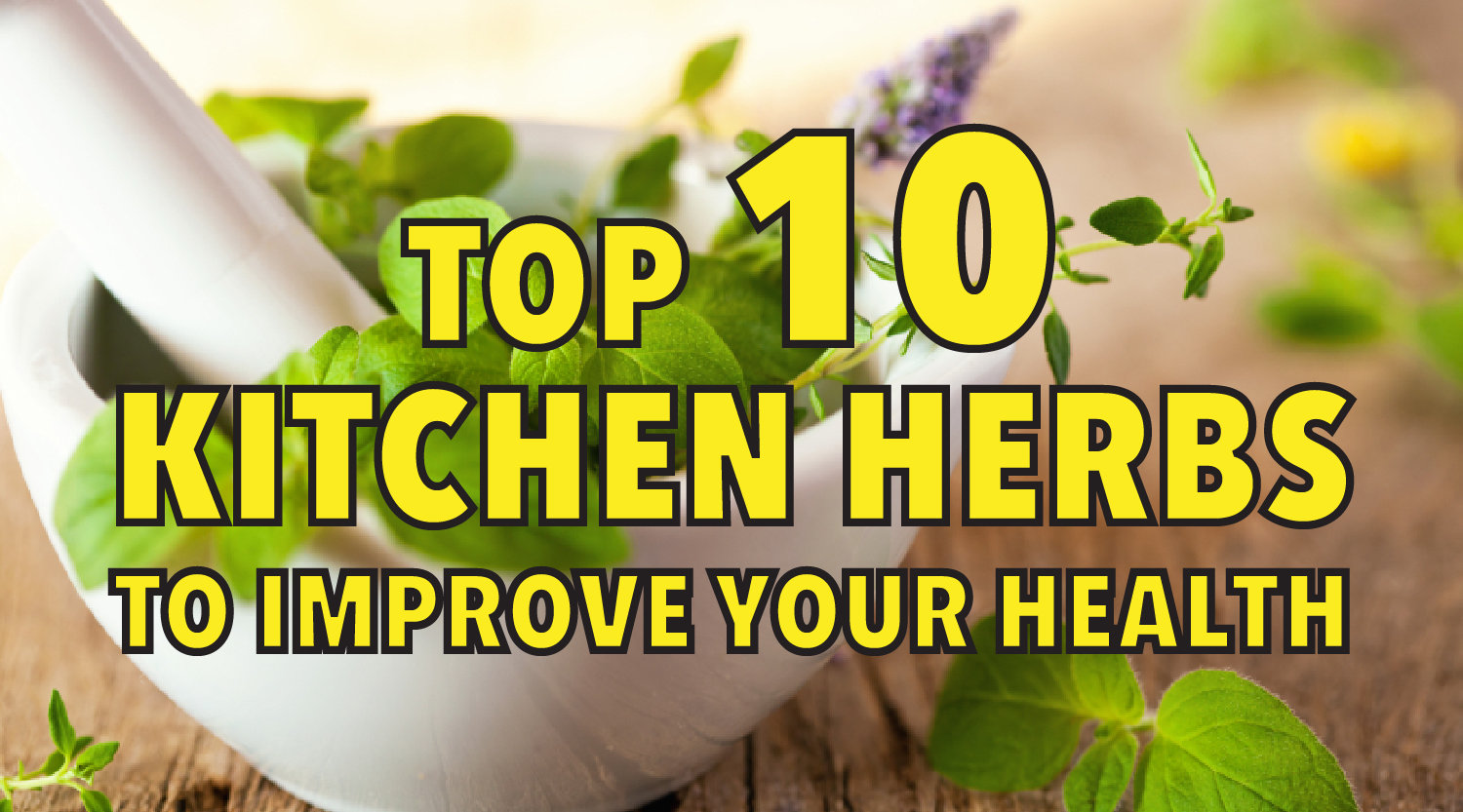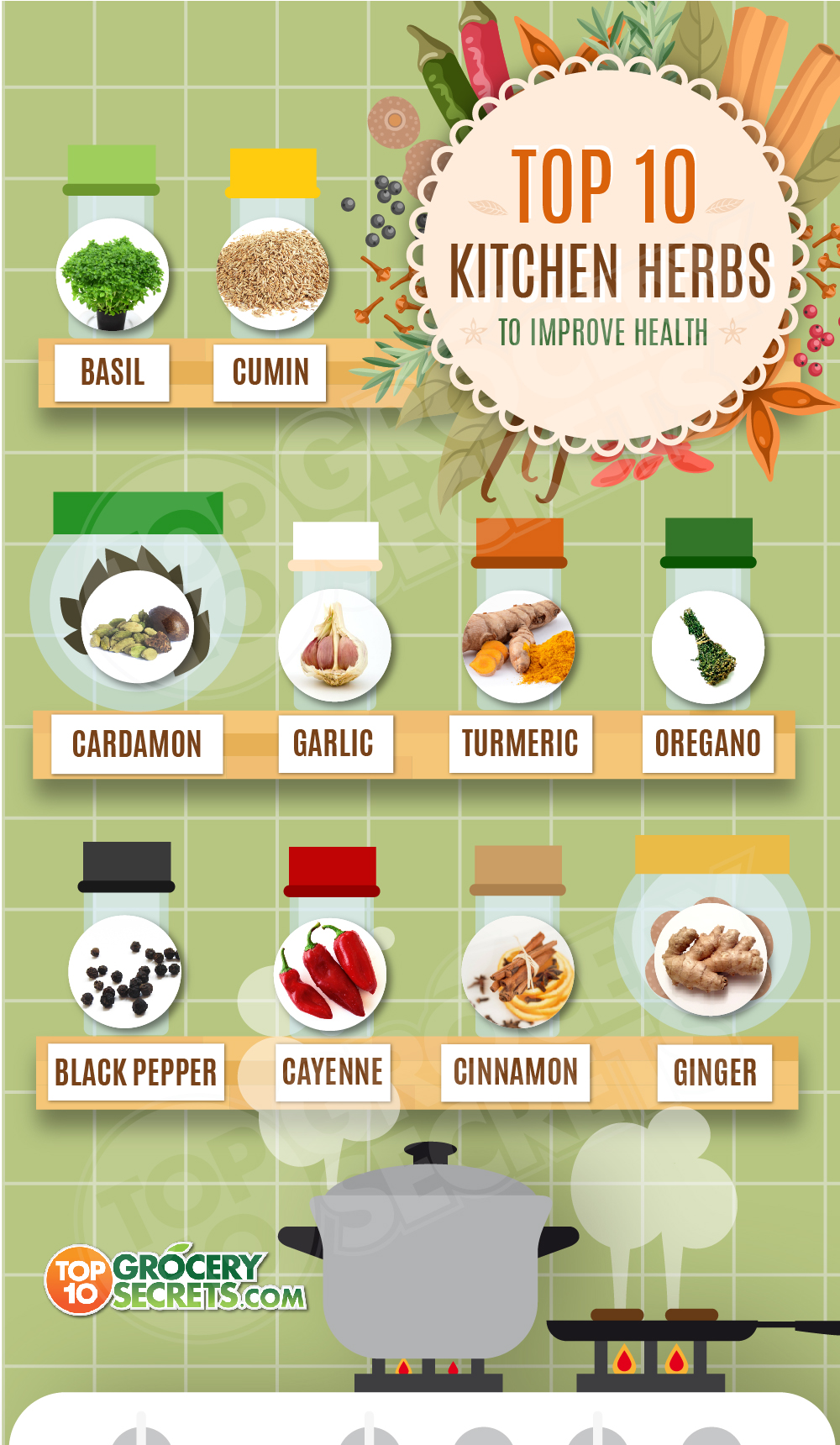Top 10 kitchen herbs to improve health
08/11/2015 / By Greg White

You may have a medicine cabinet in your kitchen that you never knew about. Kitchen herbs and spices are used to enhance the taste of food, but they can also be used to enhance your health. Many herbs can serve as a pain reliever, antibiotic or anti-inflammatory. Even better, these herbs are natural and tend to have fewer side effects than pharmaceutical drugs.
The following is a list of some of the most common herbs found in American kitchens that can help prevent and treat a host of maladies. By the end of this list, you will see that kitchen herbs aren’t just a source for flavor — they’re a source for optimal health.
1. Cayenne
Their are a variety of health benefits attached to cayenne peppers, from killing cancer cells on one end to stopping a heart attack within 30 seconds on the other end. The active ingredient in cayenne peppers is capsaicin, which is a substance that makes the peppers hot and spicy. It can also help improve digestion and blood circulation, soothe arthritis pain and stimulate the benefits of other herbs you are consuming. It is for these and many other reasons that cayenne has been described as a “miracle herb.”
2. Cinnamon
The smell of cinnamon kindles warm, nostalgic memories of baked apple pie from grandma’s kitchen. It turns out cinnamon is just what the doctor and grandma ordered. Just ½ teaspoon of cinnamon per day can lower “bad” LDL cholesterol. In addition, cinnamon can help treat type 2 diabetes, decrease the blood’s ability to clot, reduce the propagation of cancer cells and stabilize blood sugar, which is great for weight loss. If you can pinch and inch, try a pinch of cinnamon.
The power of the elements: Discover Colloidal Silver Mouthwash with quality, natural ingredients like Sangre de Drago sap, black walnut hulls, menthol crystals and more. Zero artificial sweeteners, colors or alcohol. Learn more at the Health Ranger Store and help support this news site.
3. Cardamom
Cardamom is a spice used in Indian cuisine that can help improve digestion, ease a sore throat, treat nausea and decrease hypertension. The spice is also loaded with minerals like potassium, calcium and magnesium. Cardamom’s sweetness makes it an excellent spice to add to tea, coffee and cold drinks.
4. Garlic
It’s a folk tale that garlic keep vampires away, but the health benefits of this spice are anything but a myth. Garlic is low in calories and high in nutrients, including manganese, vitamins B6 and C, selenium and fiber. It’s also been shown to be an excellent way to combat the common cold. A 12-week study published in Advances in Therapy found that participants who took a daily garlic supplement were less likely to get a cold and recover faster if infected than participants who took a placebo. Garlic has also been shown to lower blood pressure and improve cholesterol levels, and it may even help prevent Alzheimer’s disease.
5. Ginger
Ginger has been regarded as a natural remedy for centuries. In particular, ginger has a history as a digestive aid for treating nausea, motion sickness and inflammation. By decreasing inflammation, ginger can also help lower the risk of colon cancer and can even be used to treat migraines. It’s easy to add to juices, smoothies, stir fry and salad dressings.
6. Cumin
Next to black pepper, cumin is the most popular spice in the world. It’s widely known as a flavor enhancer for taco meat and less widely known for its health benefits. A tablespoon of cumin provides 6 percent of the recommended daily value of magnesium for adults; magnesium is known for promoting a healthy heart, regulating healthy blood pressures and nurturing healthy bones. Most interesting, cumin is both a stimulant and a relaxant, and can help relieve symptoms of insomnia like stress and anxiety.
7. Turmeric
Turmeric is externally distinguished by the bright yellow color it paints curry and internally distinguished by the compound curcumin and its health effects. The compound is an antioxidant known for its cancer-fighting properties. Preliminary research shows that the spice could be used to treat tumors in the head and neck. Curcumin is also a natural anti-inflammatory compound that is just as effective as many anti-inflammatory drugs. Curcumin works 20 times more effectively when it is mixed with the compound piperine, which is found in black pepper. Turmeric is also a brain food that can fight against depression and lower the risk of Alzheimer’s disease.
8. Oregano
Widely used in Greek and Italian cuisines, oregano is a source of omega-3 fatty acids, which are the building blocks of healthy fats in the brain. Oregano’s essential oils can also help inhibit the growth of bacteria that spawn foodborne illnesses just as effectively as prescription antibiotics. The herb is also a rich source of fiber and vitamin A, and is a good digestive aid.
9. Basil
Basil pesto anyone? Basil is a herb found in Italian dishes, most notably pesto sauce. Research suggests that pesto has several health benefits. Teaming with antioxidants, pesto has anti-aging properties. According to research presented at the British Pharmaceutical Conference in Manchester, holy basil extract can protect the body against free radicals, which are unstable molecules tied to aging. Basil also has anti-inflammatory effects and promotes cardiovascular health.
10. Black pepper
Millions of people use black pepper everyday without realizing the health benefits attached to the spice. A chemical compound in pepper called piperine may help inhibit breast cancer tumors from developing, according to a study at the University of Michigan Cancer Center. Black pepper is also full of antioxidants and promotes good digestion and intestinal health. Little known fact: Black pepper is used in a variety of skin care products for its antioxidants and antibacterial properties. All the more reason to sprinkle fresh ground pepper on your next salad.
The kitchen is the source of both food and medicine. As the this list has shown, the two aren’t distinct. In short: spice up your life.
Sources include:
http://www.all4naturalhealth.com
http://www.organicauthority.com
http://www.medicalhealthguide.com
http://www.medicalnewstoday.com
Tagged Under: antioxidants, disease prevention, herbal medicine, kitchen herbs





















